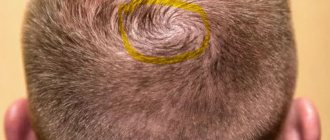Schizoid personality disorder is an extreme degree of the schizoid personality type. It develops if a schizoid person grows up in particularly unfavorable conditions. I have already written about the schizoid personality type, today I will write about schizoid disorder and its causes.
Schizoid personality disorder is included in both the American Psychiatric Association DSM 5 and ICD 10 classifications, which are most often used by domestic psychiatrists. Although I usually prefer to use the DSM, this time I will rely on the signs described in ICD 10, since there are more of them.
According to ICD 10, a diagnosis of schizoid disorder can be made if a person meets at least four criteria. I would say that any person with a schizoid personality type corresponds to four signs. A pronounced radical is not yet a personality disorder. In my opinion, schizoid disorder should be suspected if you meet 7-9 criteria.
Schizoid personality disorder: criteria
- Few things are enjoyable. This means that there are very few activities to do, and maybe even just one activity that makes you happy. We are talking about a permanent property, and not about a temporary depressive period.
- You are considered emotionally cold, distant, and show only a small range of emotions. You may have a lot of feelings for others inside, but you usually don't show them. People in a new company do not approach you; you usually sit in a corner alone. You may be told that you look arrogant or that you think you are smarter than those around you (you may indeed think so).
- You are bad at expressing both tender, warm feelings towards others and anger at them. You may feel like an emotionless robot when you need to praise someone or tell them how you feel about them. People may think that you never get angry and that you are a very calm person. You really almost always hold back your emotions. In close relationships you can be very emotional, but not with friends and acquaintances.
- When you are praised or scolded, it seems that you don’t care, you don’t show your feelings. Or you may actually not enjoy praise and not be upset by criticism, even within yourself.
- You have little interest in sexual contact with other people.
- You prefer to do almost everything alone. Other girls are teaming up to go to lunch together in the cafeteria, but you don’t understand why this is necessary, you can go alone. Coordinating your work with other people is difficult for you, so you prefer activities that you can do alone. You would rather read a book than go to a bar.
- Excessive introspection and fantasizing. This means that it is as if there is an observer in your head who looks at your actions from the outside and analyzes them. You think a lot about your own and other people’s motives, about the events that happened. Internal dialogue does not torment you, it is familiar. You often imagine various unrealistic situations and spend a lot of time in these fantasies.
- Lack of close friends (no more than one) or trusting relationships and unwillingness to have them. I don’t agree about the reluctance of schizoid people to enter into relationships. I have not yet seen a single schizoid person who did not suffer from loneliness and for whom people did not matter much. But yes, there may be no friends at all. There may not be a loved one. Most likely, a person with schizoid disorder has no more than one person with whom he communicates closely. Or maybe there will be no one at all (except relatives).
- Unintentional disregard for social norms, lack of understanding of conventions and accepted rules. You often feel like you've fallen from the moon and don't understand basic things about social interaction. You wonder why people behave the way they do. It is difficult for you to take into account the hierarchy; you do not care how you dress.
What to do?
If you are in a relationship with a schizoid
You can invest your psychic energy in a relationship, but it will always be a “one-sided game” - you will not receive the necessary emotional response in return. The feeling of a fish hitting the ice very often accompanies partners of schizoids.
When a person with schizoid accentuation is suffering, you may try to give him support, but he will contradictively withdraw. Moreover, this is not narcissistic counterdependence (the “catch me” game), but an attempt to move to a safe distance in order to preserve one’s personality from the “invaders”. When he sees that you feel bad, he thinks that the best thing he can do is move away from you. Leaving you alone with feelings of abandonment and rejection. By and large, he exposes you to the same retraumatization that he himself experienced in early childhood.
How then to deal with them?
- Give him more personal space. Don’t try to quickly have frank conversations and close the distance - this can be intimidating. Stay in “pre-contact” for the amount of time he needs to build trust.
- Find an indirect way to talk about feelings. People of the schizoid type find it very difficult to show their emotions, even if they want to. Try to find an allegorical way to discuss what is important: talk about films, paintings, music, refer to symbols, metaphors and literary images.
- Be honest and truthful. Schizoids cannot stand lies and sense insincerity well.
- Help him recognize emotions. Learning to manifest them, to be aware of them, to differentiate them is one of the main skills that can dramatically change their life.
- Do not judge him for his desire to hide in his inner “house”. It is extremely important for him to know that he has you, but it is also important to maintain his autonomy. Let him understand - “you can leave me, but I will wait for you.”
- He will make the one who has passed all the cordons of his seemingly impenetrable borders very significant for himself. You will become one of the chosen ones whom he will let into his world. However, the game should be worth the candle: both should carry out the internal work in a couple. And your schizoid partner, first of all, is the one who hurts you with his emotional unavailability.
If you yourself have a schizoid personality type
The main thing you can do to help yourself (and your partner who is having a hard time) is to consult a psychotherapist in a timely manner. Drug therapy is ineffective here, but other therapeutic techniques (for example, exposure) work well.
A specialist will help you restore contact with your own emotions (mainly fear, anger and shame), develop the ability for emotional intimacy and teach you the ability to withstand various feelings, extracting from them a resource for your own development. After all, the ability to build close relationships is one of the most important indicators of a person’s mental health.
Here you can see a psychologist.
Photo: Unsplash.com
Other signs of schizoid personality disorder
The famous American psychoanalyst Nancy McWilliams wrote that classifications of diseases, such as the DSM, include only a short list of the most obvious, verifiable signs that the maximum number of people with a given disorder have. Psychotherapists in their practice usually use less obvious, but significant signs of personality disorders.
Schizoid personality disorder is most manifested in communication problems. The person seems to have difficulty understanding the small nuances of relationships, which is why he has to rely heavily on reason and logic. It's not clear how to get close to people. Why does everyone succeed in this easily, in any new group people laugh together and trust each other already on the second or third day, but you cannot even trust those with whom you have been communicating for many years?
It’s as if you are always tense and expect bad things from people, indifference, devaluation, attempts to suppress, a sharp change in attitude towards you. To avoid this, you use an avoidance strategy. You move away, become silent, move away, don’t come closer. This is a constant strategy, you will never be caught casually talking with someone.
You feel like other people are communicating at a different speed. That they rely on something in communication that you cannot rely on. You see that other people react to you in an unusual way, not the way they react to others, but you don’t know what causes it. As a result, you get used to having a lot of control over your facial expression, and most often it is blank and expressionless. Perhaps you really want to be closer to other people, but you don't know how to do it.
Schizoid psychopathy
7) Schizoid psychopathy (SP). Synonyms: autistic psychopathy, Sukhareva syndrome, Asperger syndrome (G.E. Sukhareva described this disorder 20 years before G. Asperger). Frequency: 5–16 per 10,000 children (according to other sources, 3–7 per 1000 births). It is much more common in boys; manifestations of the disorder in girls are relatively mild. The final formation of the psychopathic structure, according to N.E. Butorina (1976) and B.A. Ledeneva (1976), occurs early, usually in prepubertal age (11–13 years).
The main symptoms of the disorder often appear in early childhood. Children are withdrawn, emotionally monotonous and inexpressive, lethargic, display weakness of physiological needs, instincts and drives, fear of everything new, lack of reliable attachments to loved ones with often symbiotic dependence on the mother and the formation of a strong attachment to home (Bashina V.M., 2012). They are often characterized by advanced speech and intellectual development, as well as motor clumsiness and difficulties in developing practical manual skills. The appearance of the patients is typical: a detached expression on a handsome face (“the face of a prince”) with poor facial expressions, an inexpressive gaze and a lack of eye contact.
In preschool age, intellectual acceleration becomes even more noticeable. Children begin to read early, and literature that is too complex for their age, they have a tenacious, sometimes photographic memory for what they read, they reveal interests and hobbies that are far from childish, and the early formation of talent in one way or another. For example, a girl at the age of 3 reads independently, dissects small animals, studying their internal organs, and at the age of 5-6 she became interested in reading classical and even philosophical literature. According to her parents, she has been talking since she was one year old, uses pronouns correctly, and has an understanding of space and time. Often, patients' interest in something becomes one-sided and consumes all their free time. Interests in this case are often unusual, for example, collecting all sorts of rubbish.
Patients are capable of complex logical constructions, ask very difficult or even abstruse questions, and are prone to monologue when talking with someone, being unable to master the skills of dialogical speech. At the same time, they lack cheerfulness and spontaneity, are reasonable in an adult way, and some patients are prone to philosophizing. In addition, they remain isolated, not ready for contacts and games with children, are motorically awkward, clumsy, make many unnecessary movements, and some exhibit tic-like hyperkinesis and behavioral stereotypies.
At school age, differentiation of personal qualities begins. In some patients, isolation, touchiness, vulnerability and wariness become more and more pronounced due to the awareness of their deficiency - sensitive schizoids (Kretschmer E., 1921). Another part has an improvement in external contact (in the absence, however, of friends), a tendency to reasoning on neutral topics, stubbornness in achieving goals that often reflect overvalued interests, a lack of flexibility - expansive schizoids, according to E. Kretschmer.
Probably, we can talk about secondary, compensatory and hypercompensatory personality formations that arise during the interaction of patients with surrounding people. At the same time, V.V. points out. Kovalev (1979), the main role in the formation of the mentioned personality qualities belongs to psychopathic and psychogenic reactions (neurotic, characterological, pathocharacterological) that arise in response to new life circumstances (separation from mother, placement in a children's institution, the beginning of independent life, inept actions of educators and etc.).
It is especially worth noting that the severity and duration of the reactions mentioned often do not correspond to the seriousness of the circumstances; the latter are paradoxical and from ordinary positions can be considered as insignificant, while subjectively they are perceived by patients as a collapse of the most important values and ideals. At the same time, important events leave them indifferent. So, V.V. Kovalev gives an illustration in which a patient, having seen a tree being cut down, perceived it as a personal disaster. At the same time, he was indifferent to his mother’s illness and hospitalization, and then to the death of his grandmother: “This is the law of nature, and there is no need to cry!”
In sensitive schizoids at primary school age, reactions such as selective mutism, encopresis, enuresis, refusal with passive submission, and subdepressive mood shifts are relatively common. The most common reactions in children and at older ages are reactions of compensation and overcompensation, such as excessive attachment to the mother, dull stubbornness, rejection of the new, as well as one-sided interests and hobbies, stereotyping of lifestyle, a state of exaggerated isolation and isolation in new life situations in adolescents and older people.
The puberty period in most cases is accompanied by decompensation with a sharpening of personality traits, the frequent appearance of the symptom of “philosophical intoxication,” rudimentary heboid manifestations (rudeness, aggressiveness, foolishness), subdepressive mood changes, an increase in neurotic disorders and personal reactions caused by an increased sense of inferiority. Grouping reactions, imitation, and antisocial behavior are much less common (Lichko A.E., 1977).
Some adolescents experience erased depressive phases with senesto-hypochondriacal, obsessive, hysteriform components lasting up to several weeks (Mazaeva N.A., 1974); in some cases, short psychotic episodes are observed with a return to the previous state. Longer reactions or autochthonous phases may lead to an increase in schizoid personality traits.
Girls do not exhibit originality of thinking, a tendency to reasoning, they are less likely to have overvalued hobbies, and instability of mood, capriciousness, a combination of painful sensitivity with emotional coldness (psychaesthetic proportion, according to E. Kretschmer), and bizarre behavior come to the fore. Compensation for schizoid psychopathy in adolescents, along with the mentioned variants of compensatory behavior, occurs due to the emergence of an increased sense of social duty, “hypertrophied” moral attitudes (Mazaeva N.A., Kozyulya V.G., 1977).
Unlike patients with schizophrenia, schizoids show sufficient productivity in the field of activity that interests them and in this regard are capable of fairly successful social adaptation; they usually do not show signs of processuality.
Among the blood relatives of patients, there are often patients with schizophrenia, people with schizoid character traits, Kanner syndrome, and secondary cases of Asperger syndrome.
Return to Contents
Schizoid and psychologist
As a psychologist, I observe that people with schizoid personality disorder tend to look away when talking about something. They can tell a lot. They have a lot of introspection and are eager to share it. They appreciate it when you give them a new idea. Even if they don't agree with it, they will remember it and think about it.
The most important problems that concern them are a constant feeling of insecurity and problems in communicating with people. These are interconnected problems, since it is people who pose the greatest danger. You can't be safe with them, you can't relax.
Moreover, it is typical for schizoids to always look for the reason within themselves. They are characterized by a request for therapy, such as: “My relationship is not working out, help me understand what I’m doing wrong.” Unfortunately, this comes with a constant feeling of “something is wrong with me.” It usually takes a lot of work for a schizoid to begin to notice the other person's contribution to conflicts and problems in the relationship.
Schizoid people are usually punctual and constant. Unpleasant incidents rarely happen to them during therapy. They appreciate the attention that is paid to them, since there is usually very little of it in life, as well as frank conversations with people.
Who are schizoids?
The main characteristic of schizoid accentuation is detachment from others, isolation into oneself.
Schizoids seem self-sufficient and disinterested, but at the same time have a deep need for another person. Extremely absent-minded and at the same time very attentive. They give the impression of being passive and insensitive, but inside they are active and emotions are seething. Schizoids may have extraordinary abilities, but at the same time have great difficulties in building close relationships. When approaching others, a person of the schizoid type constantly scans the field of relationships “between” for safety (long-term “pre-contact” is important to him). He is too sensitive to intense forms of interaction, so he uses his main defense mechanism - withdrawal into himself and his fantasies. Such people are also very characterized by deflection (intellectualization) - immersion in lengthy reasoning, excessive theorizing and philosophizing, in the sphere of thoughts and ideas, instead of being “here and now” and facing real feelings (their own or others).
Intense emotional contact takes a lot of resources from them, their “emotional container” is too small to withstand the intense feelings of others (even if they are filled with warmth). Their lack of empathy makes them cold and sometimes even cruel to others. At the same time, in relation to their personal interests, they can show extreme vulnerability, thin-skinnedness and painful pride. Prone to sophisticated introspection, they often reach the point of self-torture.
In appearance, they are most often ectomorphs (thin build, long arms and legs, as if the body itself doubts its “right to be”), their facial expressions, as a rule, are devoid of liveliness, their movements are angular, they almost do not use gestures, their voice is little modulated , the conversation is sometimes conducted on one note. Laconic and reserved, such people usually choose a solitary activity - they are very successful in science and art. In their interests, they are usually constant and selective.
Schizoid personality disorder: causes
I will start with the reasons for the formation of the schizoid personality type. It is formed in the first six months of life and is associated with the inability of the mother to emotionally merge with the child. For some reason, the mother does not learn to understand the child intuitively with the help of mirror neurons, but unconsciously tries to avoid communication with him.
If there is no intuitive connection, the mother has to rationally guess why the child is crying, what he needs now. This fit is never exact. The connection between mother and baby is normally built on unconscious reactions and reflections of each other's emotions. If there is no precise fit, the baby's anxiety level increases.
This early anxiety underlies later insecurity problems. Schizoids' problem with insecurity is not related to traumatic events or betrayals. It is associated with numerous, everyday manifestations of indifference and neglect.
In addition, the absence of the mother’s accurate reflection of his emotions, which the baby needs, creates the feeling that the mother does not like the child, that he is somehow bad. This feeling of one's own badness is different from the narcissistic feeling of one's own insignificance, which develops much later.
In the future, everything depends on whether the schizoid child will have a loving relative, for example, a father or grandmother, who will show him attention and love until he grows up. It is very important what kind of relationships a child develops among his peers. A narcissistic environment is especially harmful for a schizoid child.
If communication with a group of peers at school does not work out, the schizoid will withdraw from communication. His communication skills will suffer greatly. Not having enough nonverbal communication with the mother in infancy already creates a poor foundation for communication. But if the group of peers does not fill the gap, then problems with communication in the future will be very serious.
As a rule, schizoid personality disorder is expressed in the desire to communicate with people only on the basis of the specific, unusual interests of the schizoid himself. Small talk, mutual fun and laughter will remain the most difficult things for a schizoid person, and yet, ultimately, most of the friendly contacts are built on them.
Article navigation: “Human personality types: schizoid personality”
- Personality types and human character types
- Schizoid personality type: “schizophrenia” in each of us
- Schizoid: inner world and formation
- Schizoid: relationships with others
Personality types and human character types
Each has their own individual character and personality traits. Attempts to describe personality types have created many classifications, ranging from reliance on appearance and constitution, then based on temperament, ending with socionics and populist types for women (lover, mistress, etc.).
We propose to consider personality types, consisting of a configuration of innate data: the type of higher nervous activity (temperament), deep-seated drives, character traits and acquired traumas, thanks to which everyone’s unique personal style is finally formed.
Human character types have specific names; they correspond to the names of known mental illnesses. At the same time, this does not mean that the presented personality types are diseases, no. This is just a name that reflects a certain personality structure and certain types of human character in normal conditions, and not in pathology.
It is interesting that the very concept of the boundaries of the norm is extremely conditional. There is most likely no such person who would embody the absolute norm, from whom we could base our descriptions of madness. Each person lives with his own “cockroaches”, quirks and characteristics that make him unique.
The most original, in my opinion, explanation of the boundaries of normality and pathology caught my eye on a social network:
“There are variants of pathology that, in a socially adapted form, correspond to mental types. Each of us, under certain conditions, will manifest the pathology to which we are prone. Can you imagine the layout of the Moscow metro? So, as long as we are within the ring, that is, we are socially adapted, we are conditionally normal, and then everyone goes along their own branch. The branches have become much longer since then, that’s what I’ll say, and soon there will be a second ring...”
There are several such “branches” or personality types: schizoid, narcissistic, paranoid, manic-depressive, hysterical, obsessive-compulsive, psychopathic, masochistic (according to N. McWilliams).
These personality types do not mean a diagnosis or a derogatory mood, they are simply designations of differences, a classification, like subway lines. In cases of acute or chronic stress, each person will regress along his own branch, according to the typology.
Human character types are practically never pure, just as there is no pure norm. However, there may be a schizoid or narcissistic or depressive, hysterical, etc. living inside us. a part of the personality that may be a greater or lesser part of our psychology.
Treatment of schizoid personality disorder
Schizoid personality disorder is treated with non-drug psychotherapy. Initially, I recommend individual psychotherapy. With schizoid personality disorder, it usually takes several years until results begin to bring changes in life. But if you also have borderline personality disorder, then you see results quite quickly.
After a year, two, three, I usually advise adding group therapy. Group therapy brings enormous benefits to schizoid people. This is where the missing communication skills are obtained. Personally, I recommend group gestalt therapy with a good, fairly safe trainer. Tough, provocative methods and trainers will not work.
But here you need to rely on your desire and willingness to be in a group. If you feel that it instills great fear in you or you do not see any meaning in it for yourself, then you should postpone this method or abandon it altogether.
The main part of the work is to expand our understanding of the motivation of other people’s behavior, our own inner world, our own and other people’s emotions. This is a slow, painstaking work of differentiating different psychological manifestations and finding meaning.
If you think you may have schizoid personality disorder and would like to change something in your life, you can contact me. I work quite a lot with schizoid people, especially women. Help from a psychologist for schizoid personality disorder









